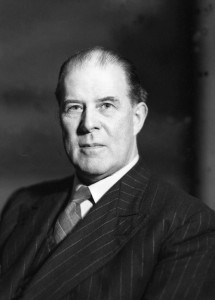For those who don’t know what a clerihew is, let me define it this way: it is simply four lines of whimsical, biographical verse. Perhaps one of the most famous of these is as follows:


This untitled poem, as most clerihews are, was penned by Edmund Clerihew Bentley, who is credited with creation of this style of poem, and aptly named in honor of him. E. C. Bentley, as he was better known, was born in 1875 and received his education at St. Paul’s School in London. He became a journalist in 1902, working first for the Daily News until around 1912 when he was brought on staff at the Evening Telegraph.
His work with ‘clerihews’ began early in his journalism career when he published Biographies for Beginners. His four-line nonsense verse poems quickly grew in popularity and were soon equal to the limerick-style of poem. The book was published under the pseudonym of E. Clerihew, which is where the term ‘clerihew’ was derived.
Bentley is also credited with beginning the ‘golden era’ of the modern detective novel, having penned Trent’s Last Case in 1913 as a protest against Sherlock Holmes’ infallibility. The book went on to be hailed as a masterpiece by such well loved mystery writers as Agatha Christie. Bentley went on to publish two additional volumes of clerihews: More Biography in 1929 and Baseless Biography in 1939.
Several other prominent writers shared in Bentley’s love for the clerihew, including G. K. Chesterton and W. H. Auden. A contemporary writer, Craig Brown, frequently makes use of the clerihew in his satires written for the Evening Telegraph – where Bentley himself spent 20 years of his life as a writer.
The rules for writing clerihews are few. They almost always begin with the name of the person who is the subject of the poem, and often that is all there is to the first line. They consist of four lines set to an AABB rhyme format, and their lines usually have irregular length and meter.
As can be seen from the many thousands of clerihews written, no public figure was exempt from becoming a potential target of these whimsical and humorous verses. I might add, that they were often pointed and, at times, cruel, in identifying some fault or personality flaw of the subject.
Here are a few more of Bentley’s clerihews:

A clerihew from an unknown writer was entered in a magazine’s poetry contest . . . and won!

In recent times, however, the clerihew has found its way from pop culture into the toolboxes of teachers in the public school classroom. Teachers have found that the clerihew can be used not only as a means for helping students remember key figures in history, but also as a mnemonic device for learning vocabulary, sequences of steps or procedures, and any other application that the creative educator might imagine.
So, in the vernacular of the day, here’s a shout out to E.C. Bentley for having played with such a wonderful form of poetry. As he penned those first few four-line poems, I wonder if Bentley had any idea of the impact his ideas would have on generations of poets and students who followed after him.


You must register to comment. Log in or Register.